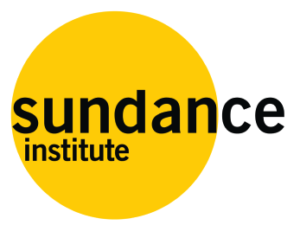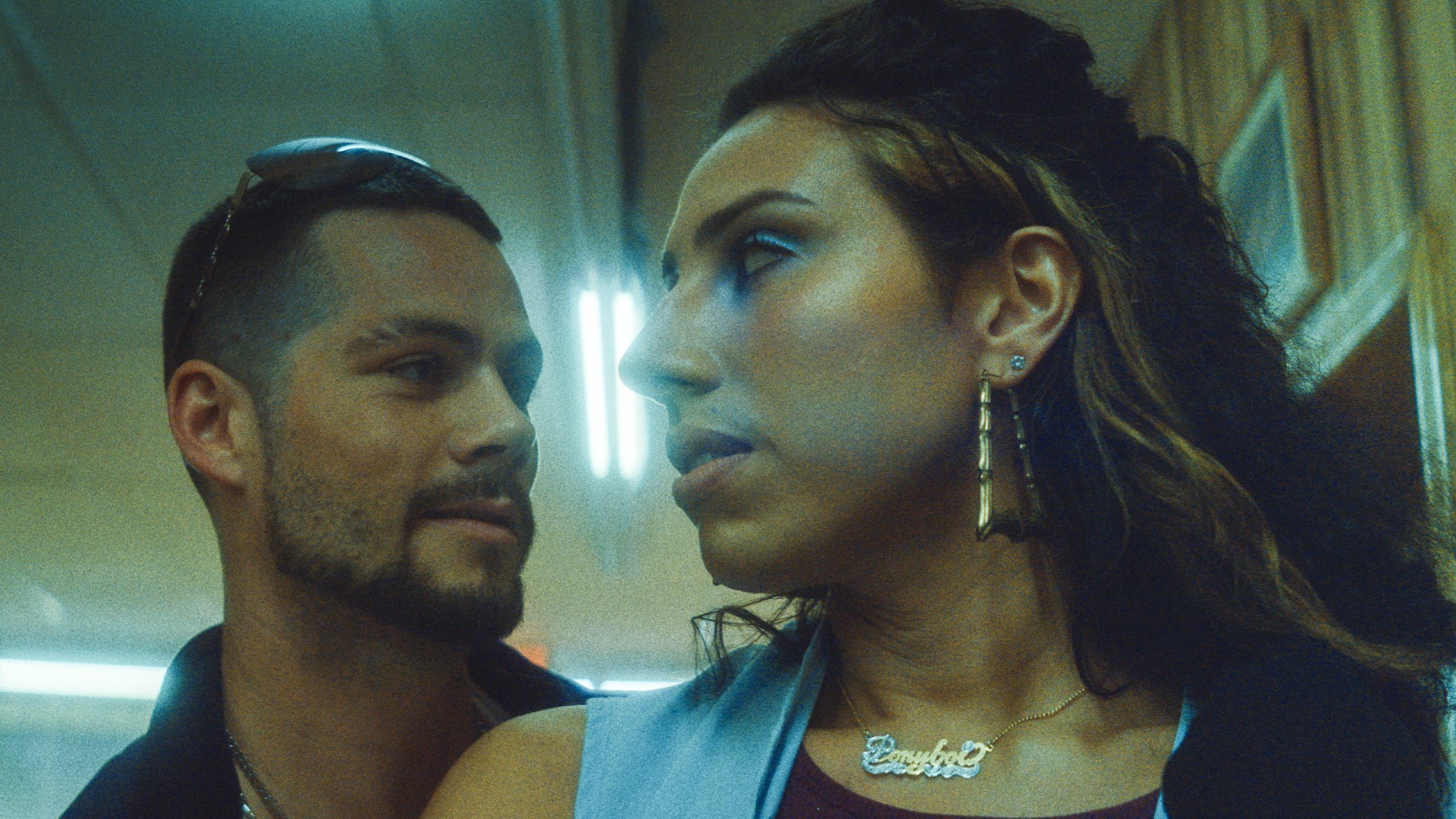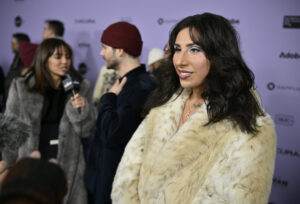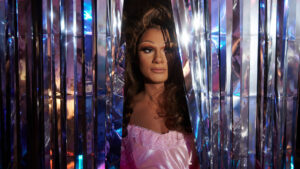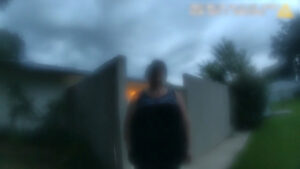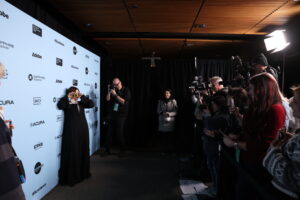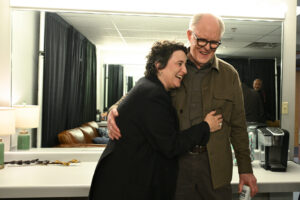By Lucy Spicer
One of the most exciting things about the Sundance Film Festival is having a front-row seat for the bright future of independent filmmaking. While we can learn a lot about the filmmakers from the 2024 Sundance Film Festival through the art that these storytellers share with us, there’s always more we can learn about them as people. This year, we decided to get to the bottom of those artistic wells with our ongoing series: Give Me the Backstory!
According to director Esteban Arango, a whole list of things inspired his film Ponyboi. “Cowboys, ponies, neon-lit diners, late nights in laundromats, noir films, mobsters in pinstripe suits, glittery dresses, sparkly lights, childhood dreams, fast cars blasting Bruce Springsteen, and all things New Jersey,” he says. But most of all, the film was inspired by its screenwriter, River Gallo.
Like Ponyboi’s titular protagonist, Gallo too is an intersex individual who grew up in a Salvadoran family in New Jersey. “As an immigrant myself, I was inspired by the parallels I found between [Gallo’s] story and my own experience — even though I’m not intersex — because at the heart of it is someone who grew up with a set of inherited cultural beliefs and principals that had to be challenged and redefined in the context of a new environment,” explains Arango. “That, to me, defines the immigrant experience. I felt like this story offered a truly unique lens into a universal story, one of shedding old skin and growing into a new identity beyond the parameters set by previous generations in order to find freedom.”
Ponyboi started out as a theater piece when Gallo was in college, then the story turned into a short film before finally blossoming as a feature that premiered in the U.S. Dramatic Competition at the 2024 Sundance Film Festival. Taking place over a single Valentine’s Day in New Jersey, the film stars Gallo as Ponyboi, an intersex sex worker who goes on the run from the mob after a drug deal for his pimp (played by Dylan O’Brien) goes awry. But as Arango’s list of inspirations would suggest, the genre-defying film tackles so much along the way, including friendship, family, community, romance, and — crucially — self-acceptance.
“I want this movie to be a point of reference for anyone who is going through a conflict of identity in whatever definition that may be,” says Arango. “I want people who see this film to know that there are always options to find and to feel a sense of self-acceptance because we’re all special and unique in our own way. We shouldn’t have to fit any other person’s expectations and definitions of who we are. We find that deep within us, and expressing our true, authentic self is the only way to feel free.”
Describe who you want this film to reach.
I want this movie to reach everyone who is going through a difficult time identifying and asserting their own gender identity or definition of self to feel represented, connected, and loved. I also want this movie to reach those who feel challenged by the expanding conversation on nonbinary gender and sexual orientation. I hope that Ponyboi offers them access to this complex human experience through a different lens, and hopefully it can spark empathy and give way to understanding and acceptance.
Why does this story need to be told now?
There’s a lack of intersex representation in cinema and culture even though intersex communities represent 2% of our population. We hope that Ponyboi can spark a new consciousness of gender and identity at a time when hate, bigotry, and social division seem to dominate the media landscape.
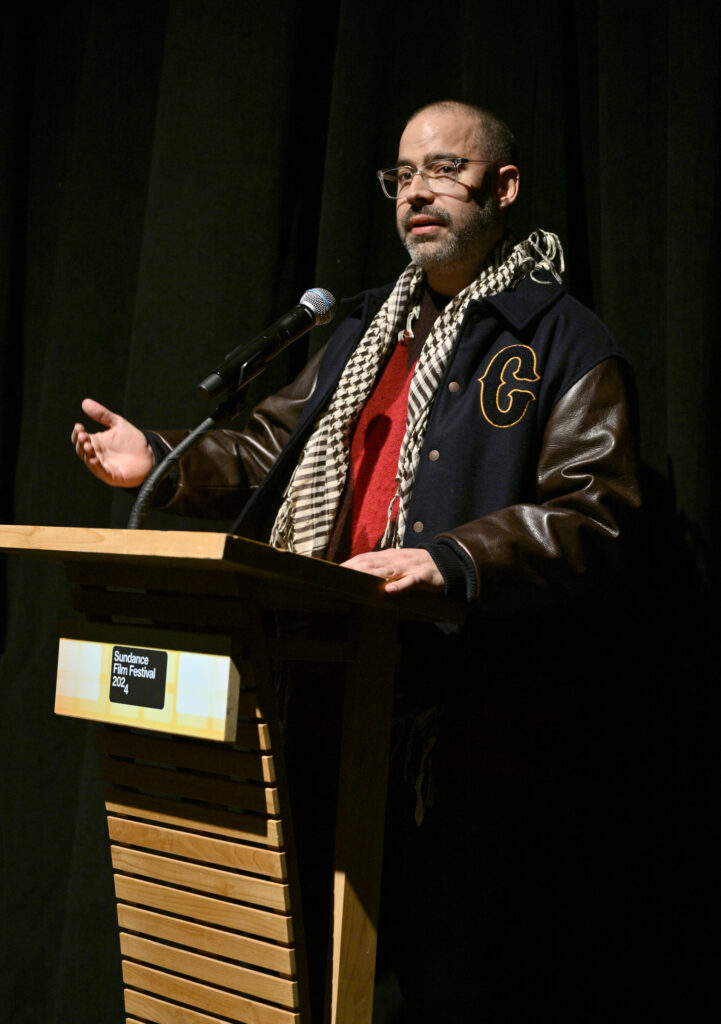
We need more stories that help us reflect on the power of building bridges with those who think differently than us and that show the type of healing that we can find in forgiving those who’ve hurt us in the past.
How do you want people to feel after they see your film?
I want people to feel less like hopeless romantics and more like hopeful romantics. I want them to feel like their hearts are full, and I want them to pick up the phone and call home.
Tell us an anecdote about casting or working with your actors.
I’ll always remember the day we cast Dylan O’Brien as Vinny. I knew going into the process of casting that role that whoever was going to play Vinny needed to have a sort of irresistible, devilish, bad-boy quality that could charm you in a second. We had a Zoom call scheduled with him the day after a friend’s wedding in Mexico. I was a bit hungover, to be honest, so I kept taking all these awkward water breaks mid-sentence, and Dylan found it hilarious. He made fun of me and laughed at my misery. I knew in that instant that he was it. We had found our Vinny.
Your favorite part of making the film? Memories from the process?
I was constantly floored by my actors’ performances on set. I think it’s the part of making movies that I love the most. Working with the whole cast of Ponyboi was a dream. There was one scene in particular between Dylan O’Brien and River Gallo that involved spitting blood, guns, and physical violence in a dark basement that I was afraid the scene was going to come across as too sinister. But then the movie gods smiled down on me and gave me the gift of working with actors who weren’t afraid to try to do things the opposite way of how you’re supposed to. Dylan had the great idea of laughing through some of the most torrid moments of the scene and the whole thing came alive. It was electric. We all felt it on set. It’s this sort of unexpected magic that arises from out-of-the-box choices that makes filmmaking so satisfying.
Tell us why and how you got into filmmaking.
I got into filmmaking because I had too many interests growing up. Music, technology, photography, stories — it all intersected in film. But I keep on making films because I’m constantly challenged by it, whether it is by the craft itself or by the feeling and intentions I’m trying to communicate through my films. Films keep me inspired.
Why is filmmaking important to you? Why is it important to the world?
Films are and have always been an important part of how I relate to the world. Films can help us make sense of our innermost feelings and conflicts as humans. Every time I’ve felt alone, misunderstood, or confused, I’ve always found comfort in films. Seeing ourselves reflected in the characters we see on screen is one of the most powerful tools we have to feel connected to each other and to understand that we’re not alone in this world.
What three things do you always have in your refrigerator?
Colombian arepas, cheese, and LaCroix… lots of LaCroix.
What was the last book you read?
The Botany of Desire by Michael Pollan. I’m obsessed with plants.
Tell us about your history with Sundance Institute. When was the first time you engaged with us? Why did you want your film to premiere with us?
I feel like I’ve been engaging with Sundance for a very long time, mostly getting rejected though. The first time I participated in a workshop was in Miami in 2014 when Sundance Institute was demystifying the process of applying to all the different programs they offer as well as submitting films to the Festival. However, my most memorable experience with Sundance was premiering my first feature film, Blast Beat, at the Festival in 2020. It was awesome. Audiences at Sundance love films. It’s the best audience your movie could have, that’s why I want to premiere Ponyboi at the Festival.
Who was the first person you told when you learned you got into the Sundance Film Festival?
My wife and kid. We did a happy dance together.
What’s your favorite film that has come from the Sundance Institute or Festival?
There’s too many, but some of my all-time favorites are: The Witch, Little Miss Sunshine, American Psycho, The Blair Witch Project, Monos.
